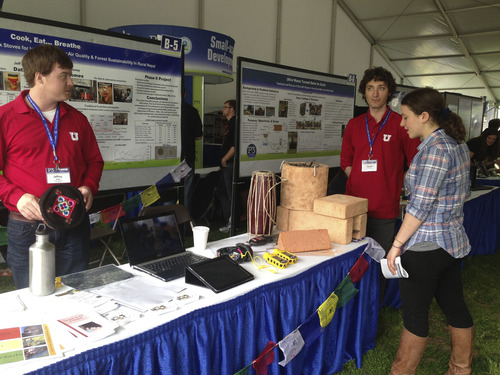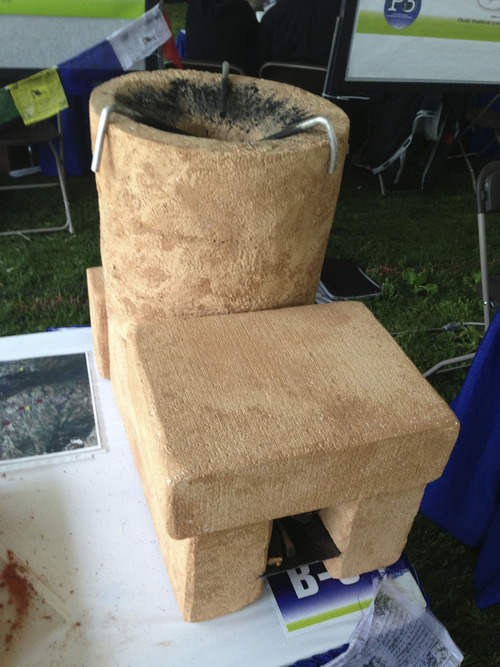This is an archived article that was published on sltrib.com in 2013, and information in the article may be outdated. It is provided only for personal research purposes and may not be reprinted.
Washington • Whether it's providing clean cookstoves to Nepalese villagers, or waste filters for Palestinian olive farmers, two groups of University of Utah students believe they can change the world — if they can convince the Environmental Protection Agency.
Two groups from the U.'s College of Engineering were on the National Mall this week competing against 43 other college-aged teams for a $90,000 People, Prosperity and Planet (P3) grant from the EPA. The contest is designed to give students a chance to implement innovative sustainable projects around the world. Each team received an initial $15,000 grant last year to start their projects.
Alexsys Smith, a junior in civil engineering, used the money to spend a month with her teammates, Jeff Huber, Dana Overacker and Dan Sweeney in Kumari, a remote Nepalese community where villagers use open-flamed stoves to cook in poorly ventilated indoor rooms.
"The walls are covered in soot. It's like having an indoor campfire in their home," Smith said, noting that after a few weeks, she and her teammates developed sinus colds that produced black mucus.
"They've been breathing this horrible air their whole lives. We could prolong their lives if we built a better stove for them," she said.
After testing a prototype with the help of JoAnn Lighty, a U. chemical engineering professor, her team designed a stove built from locally sourced clay and used rice hulls. With an internal combustion chamber, the device emits 40 percent less carbon monoxide than a traditional stove, according to Smith's estimates, and could save up to 300 million kilograms of wood each year in the region if the design was implemented in every household.
Sweeney, a recent U. graduate who worked on the project, said that the team would use the grant to start a small factory in the region, producing the stoves for just $3 each.
"It's not rocket science," he said, laughing. "It's a rocket stove, but it's not rocket science."
Sweeney was also involved with the olive oil project, which started five years ago when he and the U.'s Engineers Without Borders group teamed up with three Palestinian students from Birzeit University to figure out an alternative to dumping olive oil byproducts into nearby rivers — a practice that wreaks havoc on the local ecosystem. Three other students from the U., Xinhua Li, Jessica Earl and Ching-Chieh Lin, worked on the project.
Li, a graduate student in environmental engineering, described the project as a filtering and compost system, which screens mushy olive casings through sand, leaving dense organic matter to be composted in rolling barrels and funneling waste water through a simple pump that allows it to be reused to irrigate crops.
While the team has built a small prototype in a lab at the U.,it hasn't tested the system in the field — which would require winning the larger grant to experiment on a California olive mill before taking it to sites in the West Bank.
"If we get the funding, it will be huge — I'm really excited about that," Li said.
Both teams will have to wait a few more weeks for the results, but Smith said that she won't be derailed from helping Kumari villagers if her team doesn't get the grant.
"I don't care what it takes, we're going to find money for these people because they deserve it."





